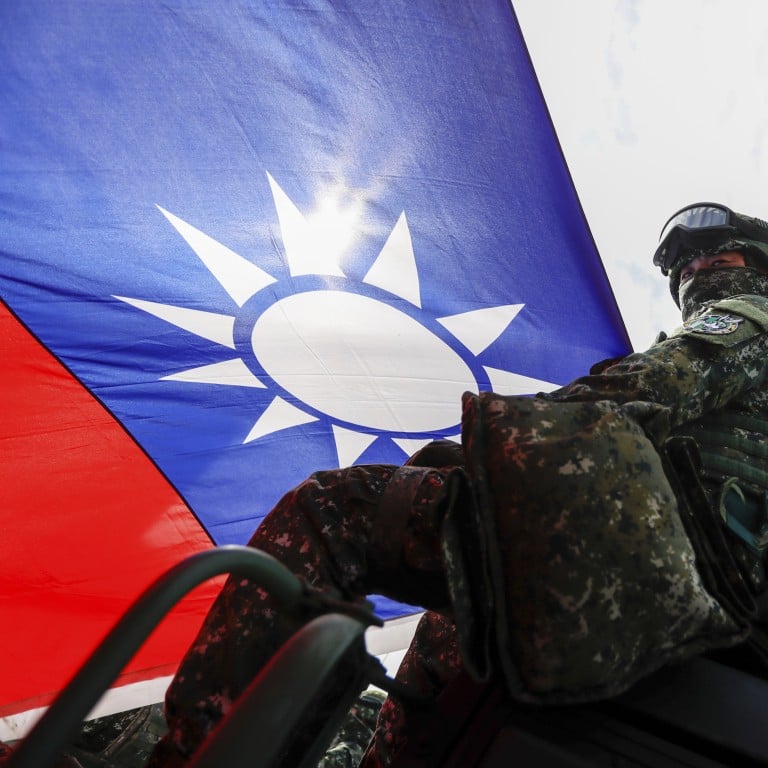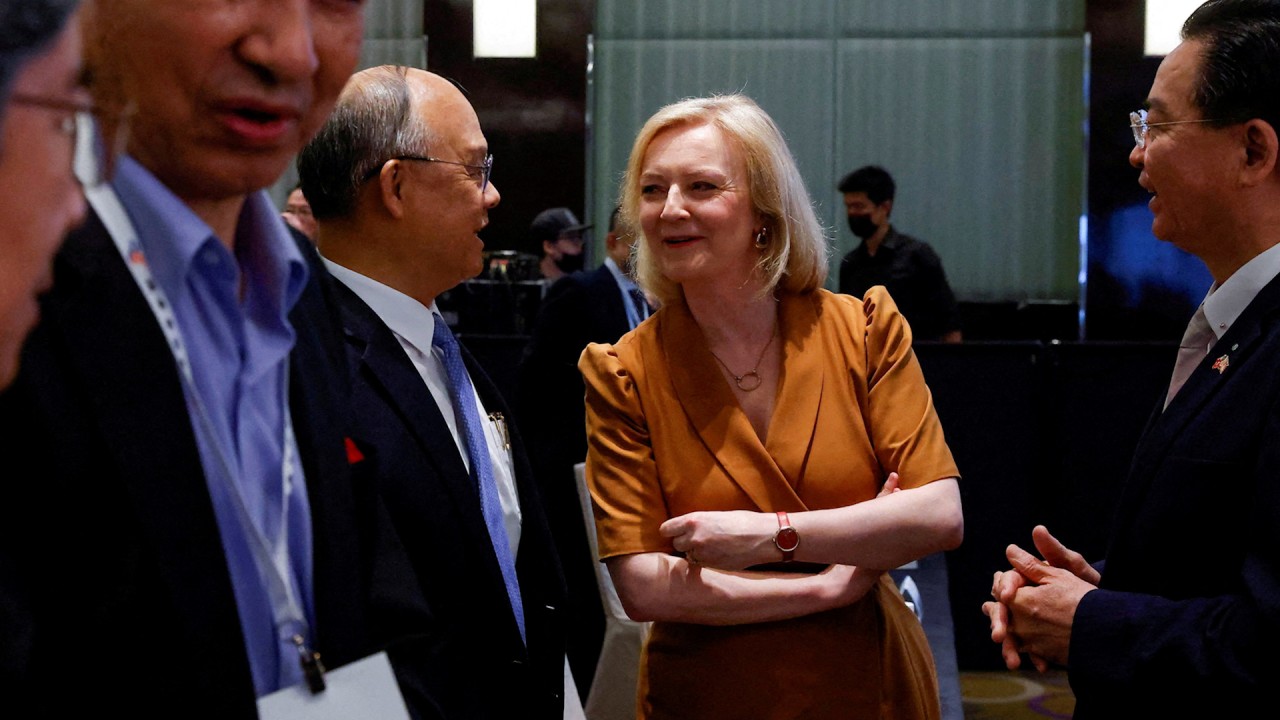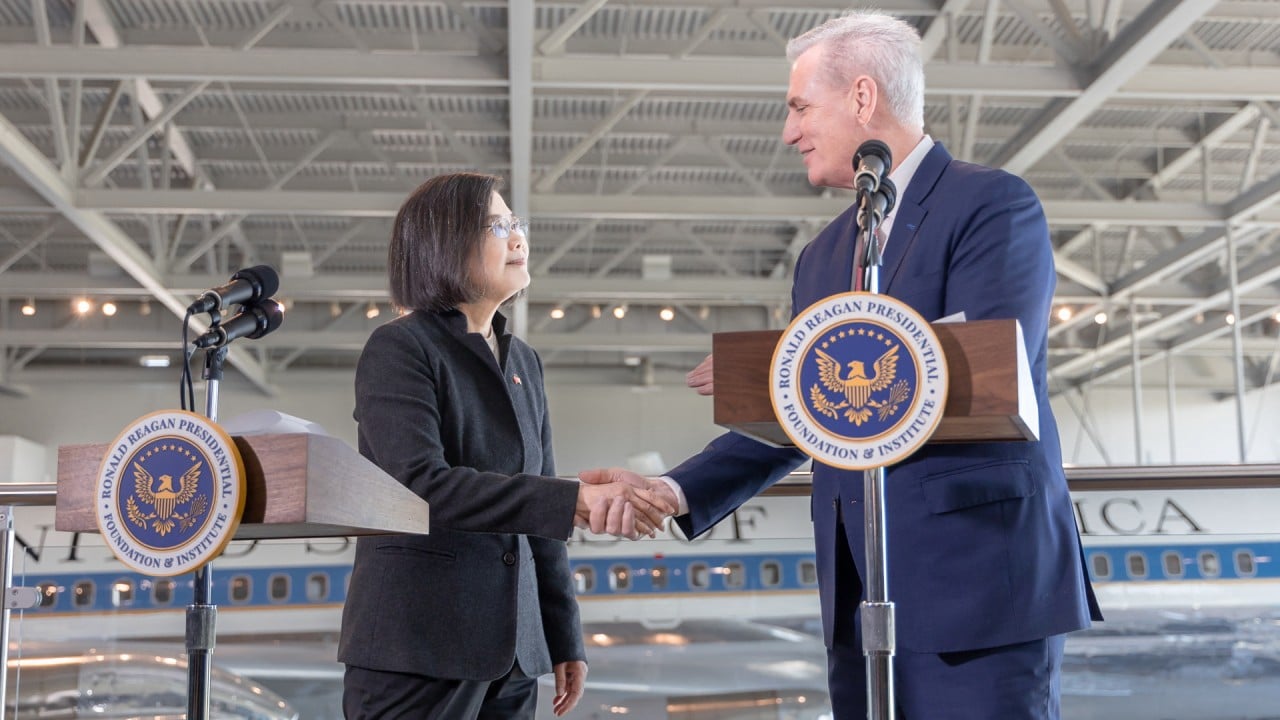
Mainland China running ‘more subtle’ campaign to sway 2024 vote, Taipei says
- Hostile anti-DPP rhetoric of previous election years absent as Beijing hypes up greater risk of war if independence-leaning party stays in power
- Mind games, soft concessions like lifting import bans and disinformation are also techniques in play, source at Taiwan’s top spy agency says
Previous election years saw Beijing unleash hostile rhetoric against the independence-leaning Democratic Progressive Party, in the hope that voters would choose the candidates of mainland-friendly parties like the Kuomintang.
However, it appears to be toning down the criticism after previous efforts to hit out at the DPP backfired, choosing instead to highlight the greater risk of war if the ruling party remained in power.
“In addition to nonstop military threats, the Chinese Communists have tried to generate fear within Taiwan by creating an atmosphere of imminent war and the feeling that people risk losing their homes and families if they continue to support the DPP or the pro-independence camp,” the source said.
Taiwanese presidential hopeful William Lai stresses cross-strait status quo
Using platforms like TikTok and other social media, Beijing had been trying to impress upon Taiwanese that the DPP government and its “hostile” mainland policy were to blame for bringing Taiwan to the brink of war, the source said.
In addition to more frequent warplane fly-bys, the People’s Liberation Army has carried out massive live-fire drills around Taiwan in recent months as the DPP’s ties with the US have grown closer.
“[Beijing] has also tried to create the impression that our foreign friends, including the United States, are not trustworthy, as they are unlikely to send forces to Taiwan’s rescue in the event of a cross-strait war,” the source said.
Beijing claims sovereignty over Taiwan under the “one-China principle” and views its exchanges with overseas governments as a violation. It has also warned the self-ruled island that any declaration of independence would warrant an attack.
The United States, like most countries, does not recognise Taiwan as an independent state but is opposed to any unilateral change to the cross-strait status quo by force.
It is also bound by domestic law to help defend Taiwan, which has included weapons sales and military exchanges, but has yet to directly declare that US troops would be sent to help deter any attack from Beijing.
In an article in April 2021, The Economist described Taiwan as being seen as the most dangerous flashpoint for war in Asia.
This came two months after former US officials and academics at a US congressional hearing ranked the island as the No 1 flashpoint in US-China relations, with the potential to trigger a military conflict.
Indo-Pacific commander Philip Davidson and US Air Force commander General Mike Minihan are among US officials who have predicted conflict with Beijing over Taiwan between 2025 and 2027.
The source said Taiwan believed that, in addition to playing up the risk of war, Beijing had also tried to portray the string of visits by foreign delegations as focused on personal or business gains rather than support for the island.
“This is to confuse the Taiwanese public and to stir their resentment towards the government for inviting foreign visitors regardless.”
Another gimmick was to “first suspend the import of certain Taiwanese products, only to resume shipments as the elections approached”, the source said.
Beijing banned the import of more than 2,000 Taiwanese food products shortly after then US House speaker Nancy Pelosi visited Taipei in August, a move that also triggered days of unprecedented PLA live-fire drills around the island.
When Beijing lifted the ban on sugar apples from Taiwan on June 20, the main opposition party KMT claimed it to be the result of its persistent efforts.
Disinformation had been another major part of the influence campaign launched by Beijing as it tried to sway the elections, the source said.
“Between January and June, we uncovered more than 1,800 pieces of disinformation with the purpose of painting the [DPP] government as unsuitable to continue its rule,” the source said, adding this was only expected to increase as the elections drew closer.



